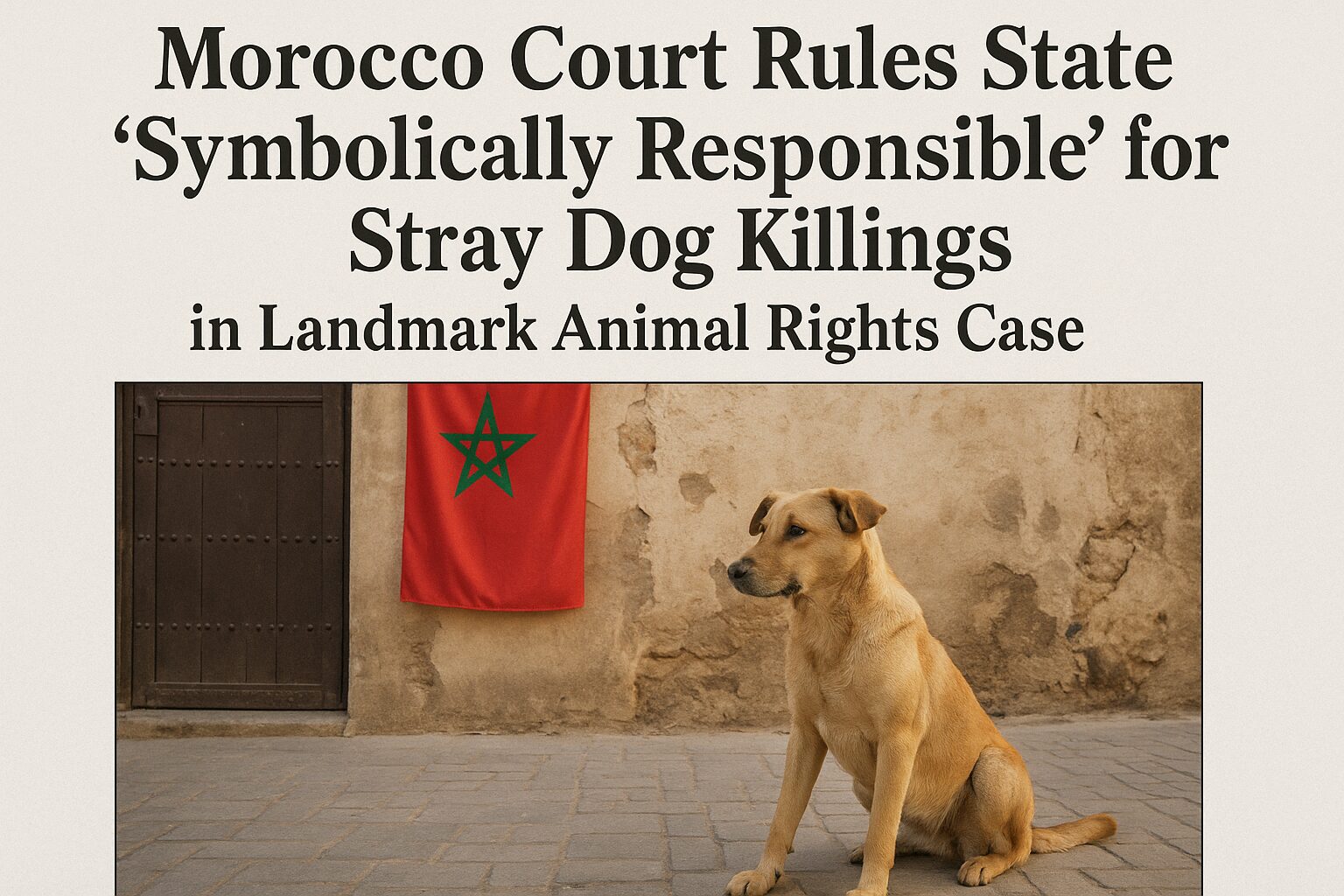
In a landmark ruling hailed as a breakthrough for animal welfare, Morocco’s Administrative Court in Rabat has found the Ministry of the Interior symbolically responsible for the mass killing of stray dogs and cats.
The judgement, delivered on 6 June 2025, followed a legal challenge by a coalition of Moroccan animal protection groups. (“Symbolic responsibility” is a legal term meaning moral blame is formally recognised, even if no penalties or compensation are imposed.) The campaigners accused the government of authorising widespread culls in the lead-up to the 2030 FIFA World Cup, which Morocco is co-hosting.
Campaigners, including United for Creatures, the Moroccan Animal Rescue Association, and the Chefchaouen Association for Kindness Towards Animals, alleged that the killings – involving shootings, poisonings and violent round-ups – inflicted deep harm on communities and violated ethical norms.
Rather than seeking financial compensation, the plaintiffs requested a symbolic sum of one dirham to highlight the moral principle behind the case: the protection of animal life. The court did not award compensation but formally acknowledged the state’s symbolic responsibility – a move widely seen as a significant legal and moral precedent.
Les Ward, Chairman of the International Animal Welfare Protection Coalition (IAWPC), welcomed the decision:
“This is another key moment in the battle for animal welfare in Morocco.
“In November 2022, a Moroccan judge convicted and fined the Governor of Nador Province for killing stray dogs as part of a municipal campaign. The judge described the killings as ‘uncivilised’, carried out in ‘brutal ways’ such as shooting and poisoning.
“He stressed that those practices, ‘which date back to ancient times, are no longer acceptable.
“Now we have another court recognising that the mass killing of dogs is not only ethically indefensible, but that the state bears responsibility. It may be symbolic, but symbols matter – and this could set a vital precedent for animal protection laws across the region.”
The IAWPC – a global alliance including PETA, the RSPCA, Dogs Trust, and Soi Dog Foundation – is leading an international campaign to end the killings. The group also highlights the psychological trauma inflicted on children who witness such acts of violence.
This week, it released harrowing footage of a young girl sobbing moments after her dog was taken and shot in front of her. The visibly traumatised child recounts what happened as distressed adults weep around her. The footage has intensified calls for urgent action from FIFA to safeguard both animals and the children exposed to these scenes.
Campaigners believe the state aims to eliminate up to three million free-roaming dogs by 2030. The Ministry of the Interior denies any extermination policy, claiming ethical population control measures are in place – a narrative the IAWPC dismisses as “state propaganda” and “pure nonsense.”
The legal challenge – supported by groups such as Hand in Paw and the Association for the Protection of Street Animals in El Jadida – marked a rare moment of judicial scrutiny in a country where animal rights cases are seldom heard. Despite its significance, the verdict has received little coverage in the Moroccan press, which activists claim is deliberately avoiding the subject.
For campaigners, the court’s acknowledgement marks an essential step forward. Les Ward added:
“It once again poses the question – when is the Moroccan Government going to stop following the path of violence and instead, genuinely look for more humane solutions?
“Continuing to insist on the use of violence is, plain and simple, a blatant violation of humanity – for which they should be utterly ashamed.”
To learn more or support the campaign, visit www.iawpc.org.

